Basements provide a great storage area for all of your extra belongings, as well as a place to hide from the harsh weather conditions outside. However, if you have a water leak in your basement, then that space quickly turns into a nightmare. In this article, we will show you how to find source of water leak in basement and take steps to fix them. Let’s get started!
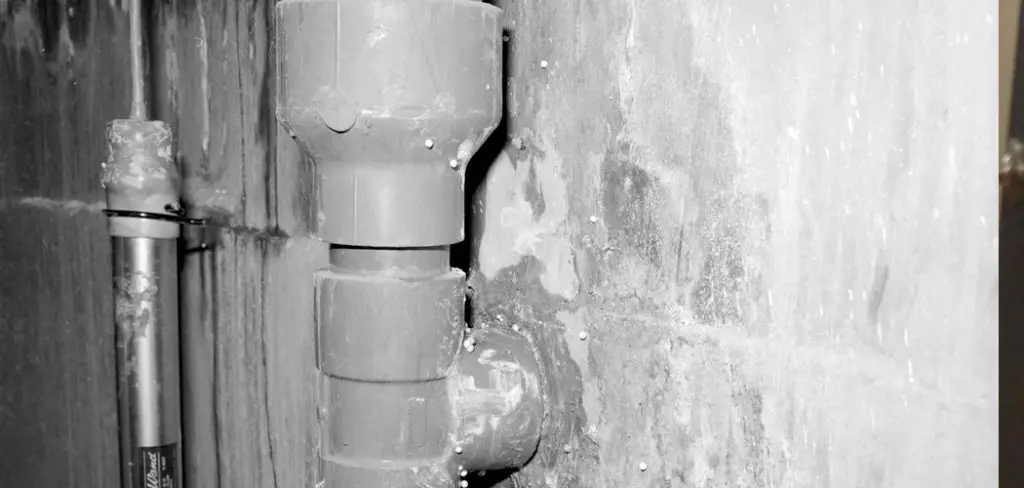
Several different things can cause a water leak in the basement. However, most of them are based on the fact that water is seeping in through your foundation or walls.
A Step by Step Guide on How to Find Source of Water Leak in Basement
Step 1: Cracks in Walls, Floor & Ceiling
Cracks in the wall are one of the significant signs that there is a water leak or any moisture problem inside your house. You need to check all around your walls for cracks and holes. Standing next to a light, you can spot them easily because they cast shadows. Next, check your flooring by using a flashlight. If it has some slight deformities, it could be due to excessive moisture.
Once you find something unusual, go ahead and investigate further by checking the basement directly above where you found this abnormality. If during the winter months, snow melts on top of your house, then it’s possible that it got into your basement through these deformities in your home’s structure.
Just look up the outside of your home and look for patches on the siding where snow might have melted and later found its way into your basement.
You can also check the ceiling by removing light fixture covers. If there is a leak in your roof or gutter, water will seep through these cracks in the ceiling; if you see any signs of wetness in between tiles, it could be from a roofing leak. If you cannot figure out what’s causing water seepage into your basement, call a contractor who specializes in waterproofing and remediation services to find out for sure.
Step 2: Water Stains on Walls
Another sign that you need to find out the source of water leaks in your basement is visible stains on your walls. This could be a significant indication of a severe problem, and there has to be something like a busted pipe or some other issue if you see these stains.
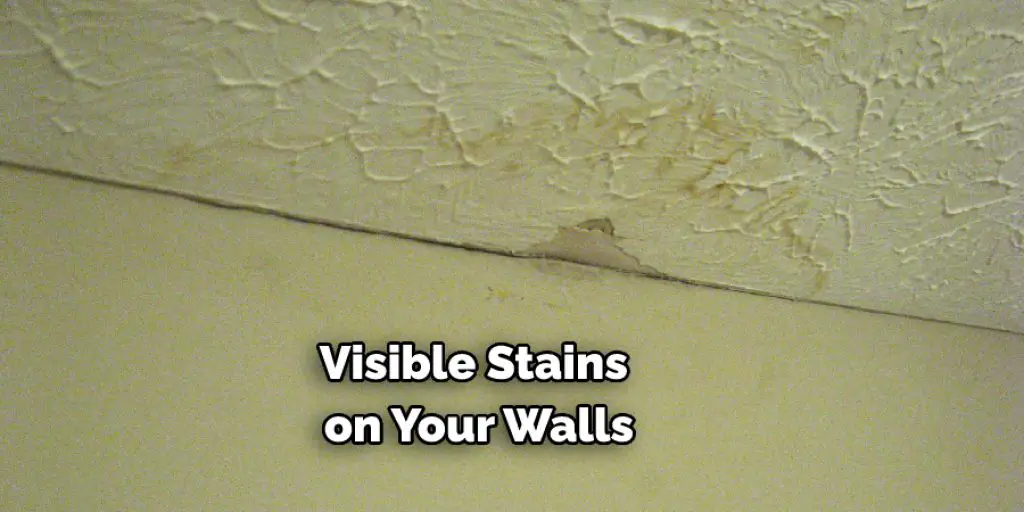
The first thing that you should do here is to check the outside corners of all the walls for any wetness; it could just be condensation from average humidity, but it would also indicate where this stain might have come from.
Examine each area with special attention, and then try plugging up any gaps you find around wall cracks, windows or doors by sealing them with caulking or new paint. Before doing anything, you know what the problem is and how to fix it.
Step 3: Standing Water in Basement
Another sign of a water issue in your basement is standing water inside this area. The likely culprit could be if your home has a sump pump that has been leaking or has failed. You can look for wetness around the electrical outlet where the pump was plugged in and check for any water spills around its drainage port, indicating leakage from this device.
Sometimes standing water could seep through cracks in your foundation, which you will need to check out by poking at it with a pole and seeing if anything comes up from these crevices. If nothing does, there’s no serious issue, but you should be proactive and check it periodically to ensure there’s no problem.
Suppose you do find any leaks coming from your foundation. In that case, you should immediately call a professional company that can provide reliable water leak detection and remediation services before the problem becomes worse. This is a crucial step in how to find source of water leak in basement.
Step 4: Pipe Leaks
You might have a water leak in your home if you notice dry areas on your walls or ceilings where the paint has been scraped off by touch.
If there is a pipe nearby that seems to be wet no matter what time of day it is, it could indicate a leak inside this device and needs to be fixed as soon as possible. Also, check for dampness near these pipes and look for telltale signs like peeling paint around them.
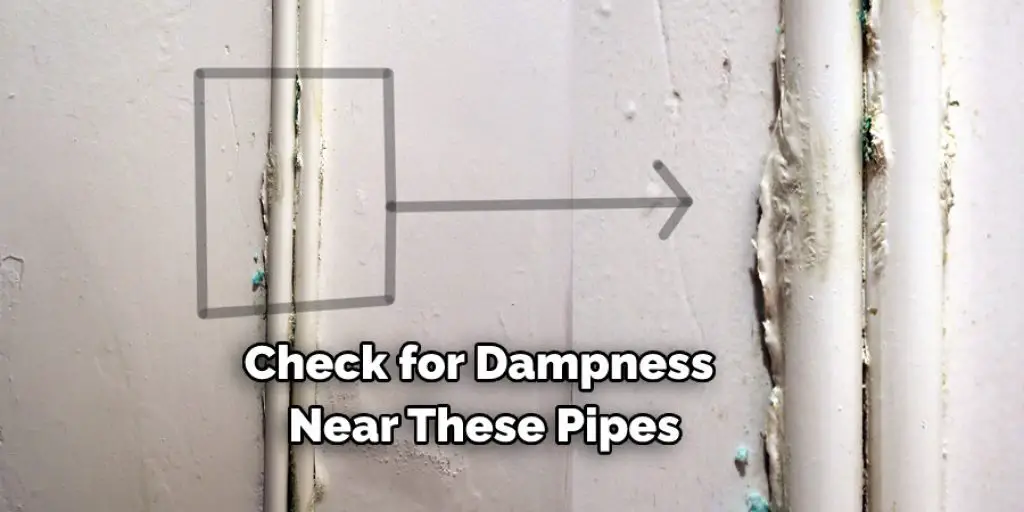
Make sure to check the joints where these pipes meet each other and any walls they come in contact with. If you have a basement, make sure to check for wetness on the floor; it could be due to moisture running down from above your head or condensation dripping off your walls.
Step 5: Mold Growth
One more sign that water might be leaking into your home is visible mold growth on surfaces like ceiling tiles, drywall, or even carpeting.
This could indicate that water leaks are occurring inside your home at someplace where it’s hard to detect; rechecking the exterior of your house would help determine if this is happening somewhere outside, like on top of some portion of roofing or under-siding.
Most cases of mold growth are due to the water seeping through your foundation and then traveling down into your basement’s interior. If you have any mold growth anywhere in your house, it’s essential to try and clean them up immediately before they become a significant problem for your health.
Step 6: Weak Basement Floors
One undeniable sign that might indicate water leaks under your home is if there are signs of buckled wooden floors sloped towards the walls or even have noticeable depressions in them. This could mean that water is constantly seeping into this area, causing it to warp over time until everything becomes too weak to support itself anymore.
What happens here is that water seeps into the soil beneath your basement floor through cracks that form around its foundation, causing damages to anything built on top of this area.
Even worse would be if there was ever a problem with the ground beneath your home, say a sinkhole or other type of soil erosion, which would cause your basement wall to collapse if it was weakened by constant water seepage. These steps will help in how to find source of water leak in basement.
Tips and Warnings
Tips:
- Check your pipes for leaks.
- If it is a hot water pipe, the leak will probably be at a connection or joint.
- Look around under sinks where there are shut-off valves.
- Be sure to check for leaking toilet flappers and faucet washers.
- Get yourself a water leak alarm to go off if moisture has been detected for more than 48 hours.
- Once you have found the source of the leak, take steps to correct it.
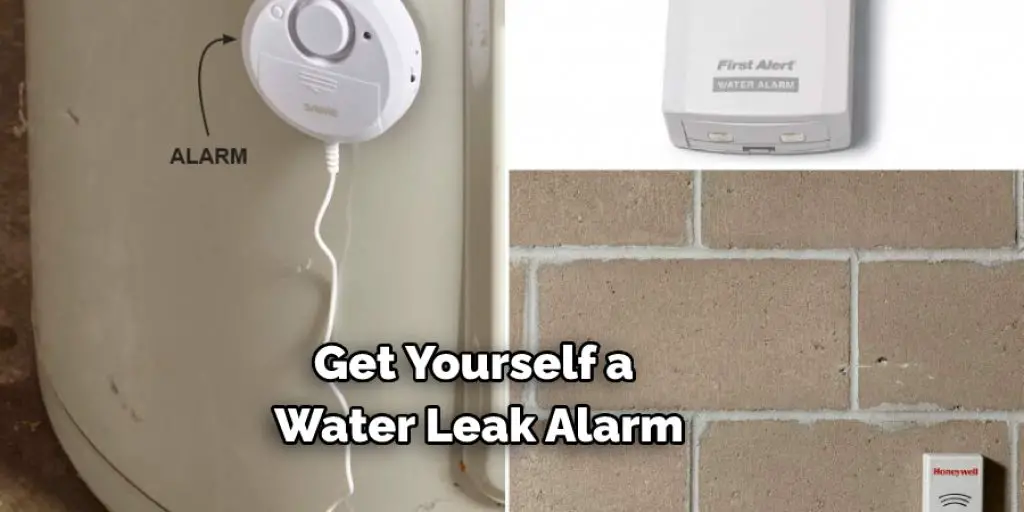
Warnings:
- Do not turn on the power if you use a tester that will create an electrical charge.
- Do not touch wires or electrical connections; they may be live and dangerous.
- Do not attempt to find a leak during a storm as you may get electrocuted by downed power lines.
- If you are not sure about your ability to repair the source of the leak, call a plumber.
Is There Any Way to Stop the Water From Leaking Into My Basement?
When it comes to basement waterproofing, you should get rid of the leaking problem and not try to stop the water from getting in. This is because you cannot simply cover up or plug off a crack or hole where the water is entering your basement. The best thing to do is find the source of the leak and fix it properly with professional help.
Homeowners should look for any signs that show there might be a leak like wet spots on walls, floors, or ceilings that occur after periods of heavy rainfall; also dark patches on ceilings, floor tiles, and wallpapers; mildew; musty odors; buckling wooden floorboards; spongy areas in the soil around piers and floor joists; cracks in exposed walls and floors; bulging walls, floors, and foundation pillars.
While most homeowners avoid the basement because it is a dark, damp, and not a very pleasant-looking area, but if you leak your basement, you need to do something about it right away.
Two ways can be helpful when trying to find where water leaks are coming from. One way is to locate the leak source by listening for it or even better with modern equipment like sonar devices that will go off when they are near the drainpipe or any other source of water flow.
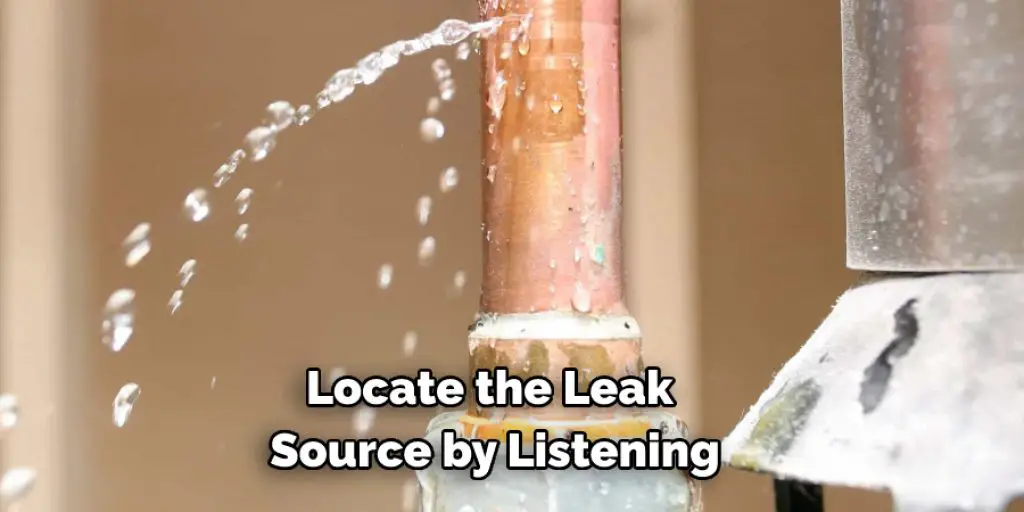
Frequently Asked Questions
Can You Fix a Leaky Basement From the Inside?
YES! By following a few simple steps, you can fix most common basement leaks from the inside.
1. Ensure that your foundation is level and plumb – This will ensure that there are no gaps or weak spots where water can seep in.
2. Repair any drainage issues – Make sure all of the areas around your downspouts are clear of obstructions, and if necessary, replace them with new ones. If possible, try to divert rainwater into hydrants or storm drains instead of letting it flow onto your property unchecked.
Why Does Water Come Into My Basement When It Rains?
Well, this question is a bit more complicated than it looks. In short, water comes down the drain during a rainstorm because the rainwater streams off of the ground and collects in gutters and downspouts. Rain that falls directly on the ground collects more water than rain that falls on greenery or surfaces like roofs or walls. Eventually, all that accumulated water flows into drainage systems and into rivers, lakes or the ocean.
How Do You Find a Hidden Water Leak in Your House?
Unfortunately, there is no easy or foolproof way to detect water leakages. However, you can use a variety of methods to try and determine the extent of the problem. These may include checking for wet spots on ceilings and walls, inspecting for evidence of water seeping through flooring or cabinets, testing for moisture levels in the air, and checking electrical systems for possible damage from moistness.
If you are unable to identify the source of your leaks yourself, then it is best to call a professional plumbing contractor who will be able to inspect your home undetected and recommend appropriate repairs or replacement measures.
Is There a Tool to Detect Water Leak?
Finding a hidden water leak in your house can be a daunting task, but with the help of the right tools and equipment, it can be done quickly and easily. Here are some of the best ways to find a water leak:
1. Use a water meter – A water meter can help you track how much water is being used in your household and identify any potential water leaks.
2. Inspect your roof – If you suspect that there may be a water leak on your roof, inspect it using a ladder and a rain gauge to measure how much rain is falling there.
3. Radiocarbon dating – If you believe that there may be a water leak originating from underground, you can use radiocarbon dating to determine when the leak may have occurred.
4. Check for signs of moisture damage – Moisture damage can indicate that there may be a hidden water leak in your house. Look for signs such as wet patches on walls or ceilings, mold growth, or damaged electronics
Conclusion
If you are looking for the source of a water leak in your basement, start with these steps. First, determine where it’s coming from by following the noise and stains. Then check to see if any moisture or water is seeping through cracks in your foundation or leaks near windows that have been left open during rainstorms.
Finally, look at pipes under sinks and toilets because they both can cause significant amounts of leakage into basements when not adequately maintained. We hope you have learned how to find source of water leak in basement.








